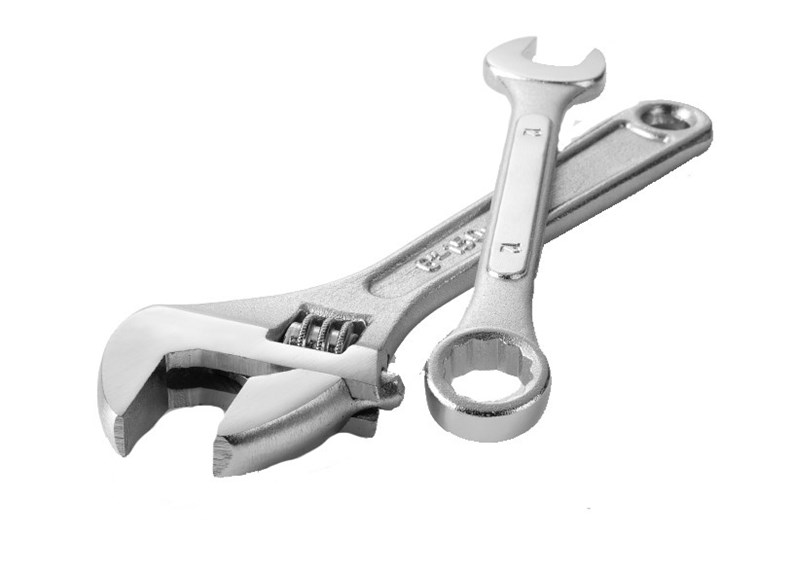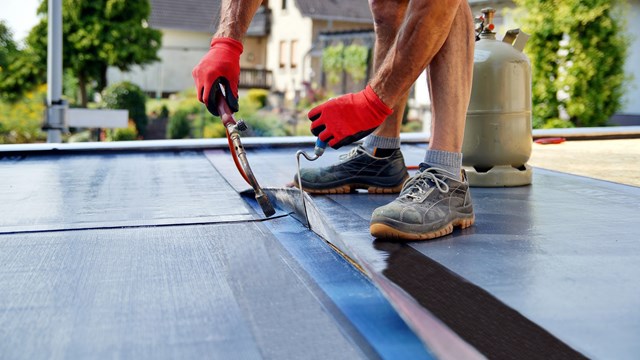Like snowflakes, no two homeowner associations are exactly alike. New Jersey's laws governing HOAs allow for a good deal of leeway in how a condo, co-op or town home community decides to run things. One of these areas is in the care and upkeep of outdoor areas.
Obviously a large part of New Jersey's landscape consists of spacious suburban communities, which generally allow for a wider array of property configurations than might be practical in an urban setting, where multifamily housing primarily consists of vertical apartment buildings with little or no space in between. With different types of communities existing close to each other, it's beneficial for all parties involved when unit owners and community management know exactly what they are responsible for.
Something in Common
In just about every homeowner association, there are common elements for which the association is virtually always responsible. Many times, the definition of a common element is clear: swimming pools, roadways, parking lots, tennis courts—there isn't an association anywhere that would require an individual homeowner to be responsible for the upkeep of a tennis court.
But there are several factors that can create circumstances where who is responsible for what can vary from property to property—one of which is limited common elements.
"You may get into what are called limited common elements," says Kenneth Lipstein, an attorney in Westfield, " which are often stairways, walkways and hallways that are accessible only to some owners. There might be a stairway that only services a couple of units—those are generally subject to the care and responsibility of the association."
Hit the Decks
Lipstein says another potential gray area is outdoor decks. Since decks tend to be private and serve only one unit, Lipstein says an association can decide whether maintenance of them will be the homeowners' or the association's responsibility.
"But there are practical questions [about] whether the association wants to take that as its responsibility or not," says Lipstein. "Because even if the deck is arguably the responsibility of the individual unit owner, unless the association maintains some responsibility over them, private decks might be refurbished or rebuilt in a non-uniform fashion, which can really detract from the aesthetics [of the property]."
So if a community board wants all decks to be made of the same material, or all be the same color, or even painted different colors in a manner that creates an intended color scheme, the board should take responsibility, he says.
"It's my opinion that decks should be under either the direct control and responsibility of the association—or at least under its supervision," Lipstein says. "And even if it's the unit owners' responsibility to maintain or rebuild the decks, it's my feeling that that has to be under specifications and supervision of the association."
It's important that whatever decision is made is spelled out clearly in the association's governing documents.
"What happens to a deck could not only affect the owner of that deck, it could affect other people just as a matter of pure aesthetics if it's not maintained," Lipstein says. "Also, decks sometimes involve structural elements of the building and often are a source of water infiltration, which can affect surrounding units as well."
Fee-Simple Homes
According to David Ramsey of Ramsey Berman PC in Morristown, there are two basic forms of ownership in a townhome-type setting: condominium style private ownership or what is called a "fee-simple" arrangement, where the dwelling stands alone and there's a small plot of land that goes with it.
"In a condominium, essentially all of the structural components of the building and the entire exterior are the maintenance responsibility of the association," Ramsey says. "So if there's a roof leak, if the siding needs painting, if there's a structural defect in the foundation, there's literally never a question of whether the association is responsible for that."
A fee-simple townhome, however, runs somewhat differently, in that the association is responsible only for what its documentation say it's responsible for. Ramsey says most fee-simple townhome documents will require the association to provide some exterior maintenance—such as painting—in order to create a unified look. But things like roofs, which are structural, are frequently—and Ramsey emphasizes the word "frequently"—the responsibility of the owner.
"There are fee-simple townhouses where the association assumes more responsibility because they want to make sure there's a uniform appearance to all the buildings. They don't want one guy replacing his roof, and another guy not replacing his roof, and the community ending up with a patchwork of roofs," Ramsey says. "So there are some fee-simple townhouses where the roof is the association's responsibility, but it's up to the draftsman of the documents, and the owners as they amend documents later, to decide exactly how far they want the association to go."
If a fee-simple community does decide to leave responsibilities such as roof maintenance to the homeowners, Ramsey says the association has little say in how the unit owner goes about getting his or her roof repaired.
"In a condo setting, [when] someone moves in and wants to do something that the association is willing to permit - like install a satellite dish, for example—as a board you can say, 'This guy is on a common element, so he has to have the right insurance, the right contractor, and so forth,'" Ramsey continues. "You really don't have that argument in a fee-simple townhouse, because the association is not being impacted."
"I think the association can have rules in regards to the quality of the roofing that has to go on there," adds Lipstein. "The shingles might have to be a certain weight, or they might have to be cedar or asphalt—they can have those aesthetic rules."
Is the Grass Greener?
When it comes to maintaining lawns and gardens, the responsibility usually lies with the association. In a condominium-type setting, the association will always be responsible for the care of all grass and shrubbery—even those that go right up to an owner's door.
Even in fee-simple homes, the association often handles lawn maintenance. An exception is in those communities that allow fences.
"Once you allow the owners to erect fences in their backyards, there's no way a landscaper will come in and take responsibility for closing the gate, or even bringing their equipment back there," says Robert Hastings of MAMCO Property Management in Mount Laurel. "So a lot of associations write language into their bylaws or governing documents allowing a fence to be built, but at the same time they recuse themselves from having to provide landscape maintenance for the gated portion."
It's also worth noting that even if an owner puts up a fence and takes on responsibility for the lawn, he or she will still pay a full maintenance fee. There are also times when a unit owner may want to handle some landscaping in the grass area outside their home, most likely to create a garden.
"Some people in multi-family buildings may want to tend a garden in an area that is really a common element," says Lipstein. "In that kind of situation, it might be best handled on a case-by-case basis." Even though the bylaws stipulate that the building is supposed to take care of that area, the association's management or board may approve of someone growing a small garden as long as it's reasonable. "I don't think anybody would go to such an extreme, that they would till up the lawns and plant a huge vegetable garden," Lipstein says.
Meant to Be Bent?
There may be times when a homeowner decides to handle something that is really the responsibility of the association, though these instances should be very rare. One example might be a common area or limited common area where snow or ice isn't properly removed. After calling the proper people, if the situation has not been taken care of, common sense says it would be relatively harmless for the unit owner to shovel or lay down some salt.
"I'm not going to say that a unit owner should never take cautions to prevent accidents—that would be silly," Lipstein says. "But in the best of all worlds, the people responsible should take care of it, and if the unit owner feels that's not happening, they should take appropriate steps and contact the association or the management company."
Even in the snow/ice example, it isn't impossible that the unit owner might use a substance that could damage the surface, or chip away with a shovel and cause damage.
Common sense would also tell a homeowner not to climb up on the roof to make a repair if the building isn't responding to his or her calls to fix the roof. But what steps can an owner take if he or she feels something isn't being taken care of properly?
"If the unit owners aren't happy with what's being done, there are a couple of different avenues," Lipstein says. "One practical avenue is to vote the trustees out at the next annual meeting. But since the law does put the responsibility of maintenance of the common areas on the association, if they're not doing it, residents can always go to court and seek equitable relief to compel the association to do what it's supposed to do."
Staying Informed
People buying a home in an HOA should take the step of learning what they'll be responsible for (as well as what they're not) when buying. Even people moving from one condo or free-standing home to another need to learn this, because things change from association to association. Most management companies and associations are glad to help prospective buyers, but it's impractical for them to seek new owners out and educate every one individually.
"Our associations try to make every effort to notify new homeowners [of what they're responsible for], but a lot of that is borne on the purchaser," Hastings says. "If you're interested in buying into an association, there are ways to find out the rules and regulations before you move in."
In addition to talking to the board and building management, a lot of information is available online, from real estate agents or from the seller.
"Under the current law in New Jersey, there isn't a lot of give and take," Ramsey says. "And I find frequently that people moving into a townhouse think they're moving into a condominium."
Ramsey says many of his properties have welcome packages that explain the association's basic rules and try to make the transition easier for new owners. He adds that there is currently legislation pending that would require associations to prepare a disclosure statement to new buyers that includes important information about the property. "That would give the adequate information to each incoming buyer as to what the association requires."
As with most things in a multi-family or association setting, getting things done and knowing who's responsible for doing them is everybody's job—not just the board or manager's. New homeowners need to read their documents, ask questions, and clarify anything that seems unclear, and board members and managing agents need to be available and willing to do their part to educate association members. Clear understanding of responsibility and obligations will not only help prevent conflict, but will help your association run more smoothly from day to day.
Anthony Stoeckert is a freelance writer and a frequent contributor to The New Jersey Cooperator.







20 Comments
Leave a Comment